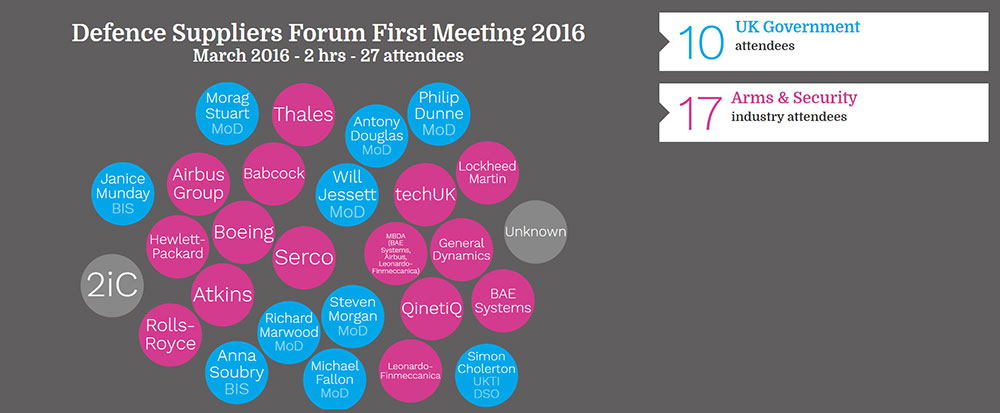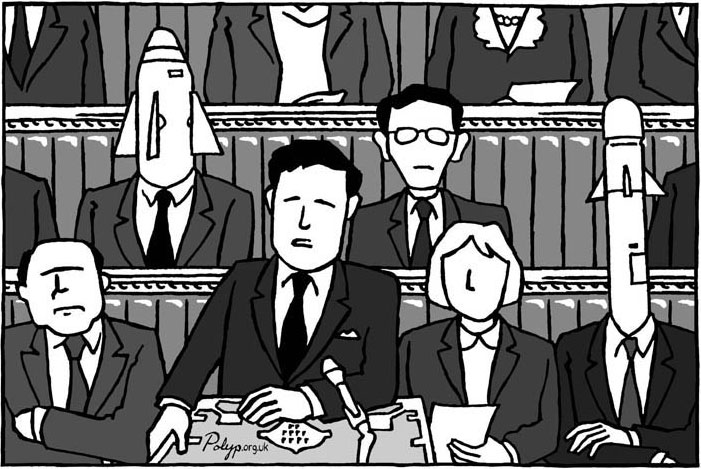Ultimately, CAAT wants to end the arms trade altogether. In the meantime, there are many steps that could be taken to reduce the influence of the arms industry within government and allow a more balanced debate where voices supporting peace, human rights, and sustainable security could be heard alongside the siren voices of militarism.
The revolving door
- The Advisory Committee on Business Appointments (ACoBA) should be replaced with a statutory independent body with the power and resources to properly investigate the risks of business appointments and breaches of its conditions. It should report its evidence and assessments in full.
- It should be mandatory to obtain permission for private sector employment and enforcement mechanisms should be established.
- Ministers and senior civil servants who have been closely involved with the arms and security sectors should be excluded from moving to arms, security and military service companies or carrying out work or lobbying related to those sectors in a consultancy or lobbying company. This approach may also be appropriate for other sectors, but is essential for the high-risk, long-term military and security procurement sectors.
- Government bodies and political parties should publish details of all secondments in and out of their organisations.
The open door
- A comprehensive statutory register of lobbyists should be established that includes in-house lobbyists and consultant lobbyists. It should provide information on clients and an indication of the level and type of work carried out for them.
- The register should be mandatory with enforcement mechanisms
- All meetings between Ministers/senior civil servants and people outside government (including lobbying consultants, companies, NGOs, MPs, Lords) should be placed in the public domain. The data should be consistent and meaningful (including information on who someone is representing if not themselves), accessible (i.e. in an open data format) and published in a timely fashion.
- The same information should be available for MPs (especially shadow ministers and committee chairs) and Lords. This would not be intended to capture information on individual constituents.
- Meetings of advisory bodies should be in the public domain. Terms of reference, membership & attendees, agenda and minutes. Some bodies, such as the Defence Suppliers Forum provide this. Many do not.
The inside job
- The arms industry has its own sales department at the heart of government – Defence and Security Exports. It is staffed by civil servants and the military and has a remit to “deliver Whitehall support” for arms sales. The influence of DSE is malign and damaging and it should be closed down immediately.




